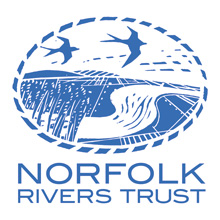Case study:River Burn, North Creake
Project overview
| Status | Complete |
|---|---|
| Project web site | http://www.norfolkriverstrust.org/trust_project/river-burn/ |
| Themes | Social benefits |
| Country | England |
| Main contact forename | the |
| Main contact surname | RRC |
| Main contact user ID | User:JoshRRC |
| Contact organisation | Norfolk Rivers Trust |
| Contact organisation web site | |
| Partner organisations | |
| Parent multi-site project | |
| This is a parent project encompassing the following projects |
No |
Project summary
It is part of the Norfolk Rivers Trust’s mission to gain the active participation of the community. Stakeholders help us to set objectives, keep us informed about issues on the ground such as pollution and actively volunteer to make many more worthwhile projects possible.
Norfolk Rivers Trust have recently started to work in the Burn catchment, and we were very pleased to receive over 80 people at our latest event at North Creake Village Hall.
An opportunity to restore a section of the River Burn by fencing off livestock and tree planting has already been identified with the aid of the landowner, and this project will be greatly helped by the help of volunteers. Norfolk Rivers Trust are grateful for the help which The Creake Abbey Trust has given to make this project happen, and hope that more projects will be initiated in the near future.
Monitoring surveys and results
Lessons learnt
Image gallery
|
Catchment and subcatchment
Site
Project background
Cost for project phases
Reasons for river restoration
Measures
MonitoringHydromorphological quality elements
Biological quality elements
Physico-chemical quality elements
Any other monitoring, e.g. social, economic
Monitoring documents
Additional documents and videos
Additional links and references
Supplementary InformationEdit Supplementary Information
| ||||||||||||||||||||||||||||||||||||||||||||||||||||||||||||||||||||||||||||||||||||||||||||||||||||||||||||||||||||||||||||||||||||||||||||||||||||||||||||||||||||||||||||||||||

